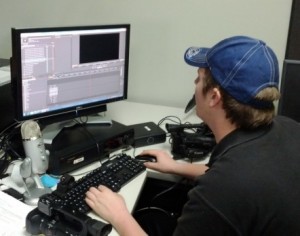In order to maintain optimal storage capacity and ensure the ongoing smooth operation of D2L, the LTC conducts an annual purge of older courses from the system. We have begun to prepare for this year’s D2L course purge that will take place on June 15th, 2012. On June 15th, 2012, courses from Fall 2007 through Summer 2008 will be purged from the D2L system.
If you do not need to retain information from these courses, simply do nothing. The courses will automatically be removed; no action is needed on your part.
If you need to retain information from these courses, please read on for more information.
- The D2L course cleanup process will begin June 15th, 2012.
- If you do not need to keep course materials or student information from courses offered Fall 2007 through Summer 2008, do nothing.
- If you need to keep course materials or student information from courses offered Fall 2007 through Summer 2008, consult documentation on the D2L Cleanup Resources site or contact D2L Support for assistance.
- If a special circumstance exists where a course must remain in D2L, please complete and submit the Course Cleanup Retention Form before June 1st, 2012. LTC staff will contact you for further information within five business days.
- Please review the “Frequently Asked Questions” section below before contacting D2L support. The information in this section may answer the questions you have.
Thank you in advance for your attention and cooperation in the D2L cleanup process!
Frequently Asked Questions
What does it mean to clean up D2L courses?
The cleanup of older D2L courses refers to the complete removal and deletion of that course with no way of restoring it. The D2L courses slated for purge will be permanently deleted. All files and student records will be deleted.
How do I know which of my courses are scheduled for cleanup after June 15th, 2012?
First, login to D2L and look at your courses in the “My Courses” widget. Courses are identified by semester and year. In the upcoming purge, courses from Fall 2007 through Summer 2008 will be removed if no action is taken.
Please note that courses under the “ONGOING” or “OTHER” designation are NOT slated for cleanup. If you have courses under those designations, they will NOT be removed.
Why are we limiting the course cleanup process to only older D2L courses?
Recent courses (those after Summer 2008) are not included in the purge because, 1) students need sufficient time to finish incompletes and challenge grades, and 2) instructors need sufficient time to reoffer their course. Retaining recent courses is consistent with the guidelines and policies of the UW Records Officers Council.
What if I reoffer my course on a regular basis?
In most cases, when a course is reoffered by the same instructor, the instructor copies some or all of the content, files, gradebook and discussion structure from a previous course offering into a new offering. Once that copy process is complete, the earlier version of the course offering can be deleted without affecting the new course offering.
If a course periodicity spans several years, steps must be taken to ensure the original course offering is not deleted too soon. If this is the case with one or more of your courses, please contact D2L Support.
I need to retain my gradebook so I can review student performance several years after the course ends.
The D2L gradebook can be exported to a CSV file that can be opened with Excel and other applications. How do I export my gradebook to CSV?
When downloading or saving a gradebook or student submission, it is important to maintain the privacy of those records. They should be saved on password protected campus network storage rather than on local hard drives.
Questions about how long grade books and student records may be retained should be forwarded to the UW-W Records Officer.
What about my content files, quizzes, etc. in my old courses?
Content, course files and quizzes can be copied into a newer offering of the same course. This is very common, especially when the same instructor teaches both offerings. Also, course files can be easily downloaded to be uploaded back into a course later. How do I download my course files?
Why not just leave old courses on D2L?
A course cleanup policy was established in 2009 by the UW System, and the process is imperative to ensure the ongoing smooth operation of D2L. The main reason for deleting old courses is to manage and contain the growth of D2L storage and operating costs as well as to lessen negative impact on performance and user experience as use of D2L continues to grow.
Can I archive my old courses? (Can I save a complete copy of my course?)
Instructors can export their content files, gradebook, and student files from a dropbox folder and retain them locally. How do I download data and student submissions from various areas of my course? (Goes to How-To’s page of Cleanup site)
What if I do nothing?
Your courses will be permanently deleted after June 15th, 2012. In most cases, you will not need these courses and do not need to take any action.
Who can I talk to if I need help?
Your UW-Whitewater D2L support staff members are familiar with the course cleanup process and are prepared to answer your questions and provide assistance as needed. Contact D2L support if you need assistance with any of this process or your circumstances are unique and are not addressed here.
Complete information on the cleanup process can be obtained from the D2L Cleanup Resources web site (http://www.uwsa.edu/d2l/cleanup), or by contacting D2L support.





